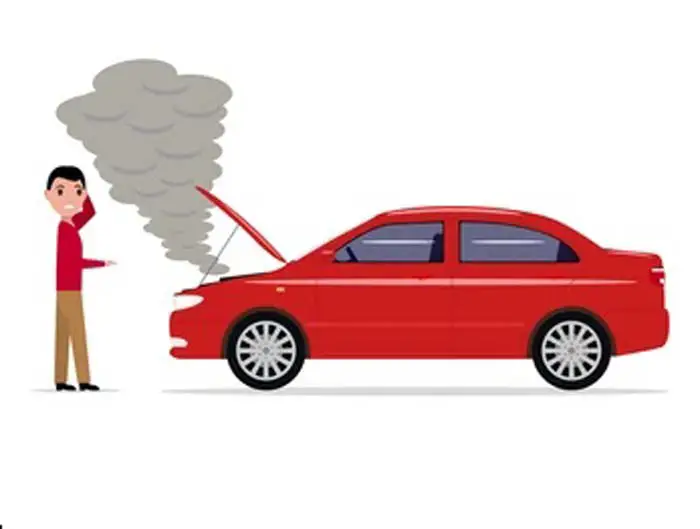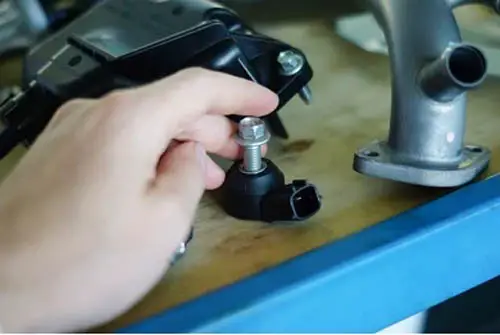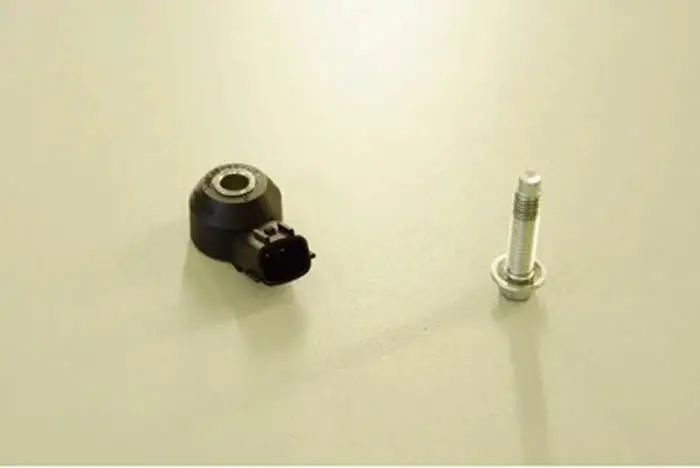
The knock sensor in a car engine is responsible for detecting the knocking noise that comes from the engine. When it detects this noise, it sends a signal to the car’s ECU, which then adjusts the engine’s performance so that the knocking is reduced. The knock sensor is a very important part of the car engine, as it helps to ensure that the engine is running smoothly and efficiently.
if the knock sensor fails, the engine will not be able to adjust the ignition timing properly and this can lead to pre-ignition and engine damage. In most cases, a failed knock sensor will need to be replaced in order to avoid further damage. In this powerful guide, you will learn If you have a bad knock sensor and whether it damages the engine.
Related Post: Car Knock Sensor: What It Does, How It Works & Why It Occurs
Can A Bad Knock Sensor Damage The Engine

The engine knock sensor in your car is responsible for detecting preignition and early detonation, which can cause harm to your engine owing to unusual types of combustion. The indicators of a defective knock sensor are loud knocking noises, pinging sounds, lower engine performance, and poor fuel consumption, all of which can protect the engine from being permanently damaged.
The greatest and most severe symptoms of a faulty knock sensor occur when internal engine components are damaged or break down over time. If you don’t change the defective knock sensor or one of two other engine parts, your vehicle will start to suffer, with increased drag and jerking while accelerating.
First of all, you should know that the bad knock sensor is not the cause of the knocking. Its only role is to prevent damage to the engine’s internal parts from knocking them by informing the ECU, which helps keep the engine running smoothly. It helps protect the engine from harming itself but is not to blame, nor is it the solution, for the knocking.
When you drive with a bad knock sensor, the ECU will not know that there is knocking in the engine, as a result, your engine will thud and thump and the ECU will not adjust the other parameter to prevent the engine from knocking. Over time, this will do a lot of harm to your engine. Second, you won’t want to drive your car because of the frequent noises, jerks, and difficulty accelerating, among other issues.
You may also notice a burning odor or smell originating from the engine and entering the interior of your vehicle, which both passengers and the driver can detect. If you continue to drive your vehicle, the defective knock sensor and inadequate engine components may cause the entire engine to be ruined, necessitating a replacement.
No matter what kind of make, model, or year of the vehicle you have, an engine replacement is one of the most expensive repairs or fixes you can have. Replacing an engine often costs the owner more than the vehicle’s total value. The sooner you take your car to a mechanic, the less money you’ll end up paying in the long run. It may cost a bit more upfront, but when compared to additional petrol purchases and the possibility of an engine repair down the road, it is a lot more cost-effective choice.
When the piston strikes a “hot patch” in the chamber and creates an uncontrolled burn, knocking sounds are created. In other words, it is unaffected by the typical combustion sequence of events. It’s been suggested that uncontrolled ignition damages the engine over time, eventually leading to failure.
A faulty knock sensor might result in a variety of issues. The first is a failure to pass emissions tests. Even if you have corrected all internal engine problems, if the car is running rich, the fuel mixture will not pass. Second, after the catalytic converter, there are higher HC levels in the exhaust stream.
So, the bottom line is, If not corrected, a defective knock sensor can cause engine damage. Pinging or knocking noises, reduced performance, and power, high HC and CO levels in the exhaust, and low compression readings are some of the symptoms. If you’re having any of these issues, you should get your knock sensors replaced as soon as possible.
Related Post: Knock Sensor Problems – Could Your Car Be At Risk?
Sign Up




